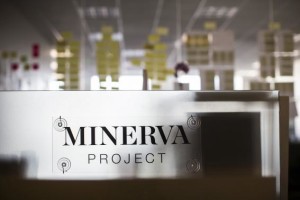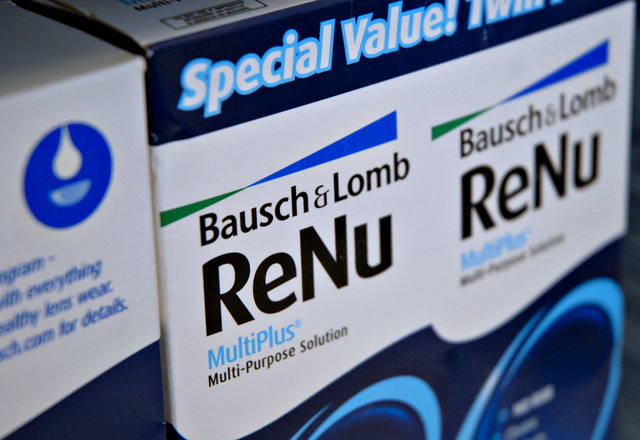San Francisco, California, EE.UU. – Offering a twist on the learn-from-anywhere convenience of Internet classes, a new university is asking freshmen to take a large leap of faith.
Minerva Schools of KGI, a radically experimental university in San Francisco, is sifting through applications for its first class, starting this fall. The school is an alliance between Minerva Project, a venture-backed for-profit company, and Keck Graduate Institute, one of California’s Claremont colleges.
The school launches just as studies are questioning the efficacy of Web teaching. In California, a high-profile program run by San Jose State University and startup Udacity was suspended after officials found that failure rates for online students were much higher than for traditional learners.
Last month, the University of Pennsylvania Graduate School of Education released a study showing that only about 4 percent of those who register for an online course at Penn complete it. The courses are free.
The field nevertheless remains one of the hottest for startups. Minerva has raised $25 million from Benchmark, a leading venture-capital firm. Others with VC backing include Coursera, Udacity and 2U, which have raised $85 million, $20 million and $101 million, respectively. Harvard, MIT and other leading universities offer their own courses online gratis in an initiative called EdX.
[divider]
Minerva says what it plans to do is different.
“Technology can be used in a much more effective way in higher education than has previously been the case,” said Stephen Kosslyn, Minerva’s founding dean and the former dean of social sciences at Harvard.
Even though all classes will be held online, first-year students must live in a residence hall in San Francisco and take classes together in real time, deviating from the “anywhere, anytime” model prevalent in online education.
“We are entirely focused on active learning,” said Kosslyn. Before each class, students must complete assignments that will require vigorous participation during the online session, such as engaging in a debate, presenting their own work, or critiquing that of others, he said.
Courses will be recorded, in part so faculty can track and measure growth in rhetoric and other skills. Final grades for those first-year classes will not come until just before graduation, so the grades will reflect progress in those skills over the years.
For serving as guinea pigs, the first class of students will be rewarded with free tuition for all four years, although they will have to pay $19,000 annually for room and board. That compares to a price tag upwards of $50,000 a year at many other top U.S. universities, the group Minerva already compares itself to. Some financial assistance will be available for students, according to the school, but the university will not participate in the federal financial aid program.
The university has been developing its curriculum since hiring Kosslyn in March last year. Minerva’s chairman, former Snapfish president Ben Nelson, believes the systematic development of skills such as critical thinking will do more to create leaders and innovators than the haphazard approach he believes characterizes traditional universities.
Some of Minerva’s ideas are variations on policies that have largely fallen out of favor elsewhere, such as putting all first-year students through the same core classes instead of allowing electives. Minerva students will spend their first year taking four classes designed to teach communication, critical analysis, creative thinking and collaboration.
A B.A. IN BS DETECTION
In a meeting last month, Kosslyn and Eric Bonabeau, dean of computational sciences, sat in front of a white board covered with colored Post-it notes to try to hone the formal analysis class that all freshmen will take.
The class will include statistics, mathematics and business – including topics such as financial statements. Bonabeau will simultaneously train students in various foundational skills, such as negotiation and the ability to quickly summon counterexamples or check the plausibility of assumptions.
“Basically, you have a bullshit detector Minerva is building for you,” Bonabeau said.
After the first year, students will select traditional majors — what Minerva calls “concentrations” — in fields such as economics, philosophy and computer science.
Measuring whether the curriculum really will lead to greater development of skills such as critical thinking could be tough, said Andrew Kelly, director for the Center on Higher Education Reform at the American Enterprise Institute, a Washington, D.C.-based research organization.
“It will be hard to know the value-added of Minerva’s approach, because they’re starting with students who they have selected on the basis of being talented and driven,” he said. Comparing its graduates’ skills and accomplishments to those of other schools with similarly rigorous admissions standards might be one solution, he said.
Kelly said he expects Minerva to draw high-caliber applicants on par with the country’s top schools.
The four deans who will teach the core courses to the freshmen class are already in place; other professors have yet to be named. Minerva says it plans to hire faculty from around the world, but unlike at other universities, they will be given
short-term contracts rather than lifelong tenure. It anticipates a ratio of about 16-17 students per faculty member.
While students will start their education in San Francisco, over the four-year program they are required to move to other cities where Minerva will have residence facilities, ideally every semester.
“Experiential learning is all about interacting with the world around you,” Nelson said. “That is done best when you are immersed in the best the world has to offer as opposed to living in a cocoon.”
Minerva expects students to engage in school-sponsored activities that complement the curriculum — trips to the Golden Gate and Bay bridges in San Francisco, say, in the company of an engineer.
Applications from more than 75 countries demonstrate the appeal of the online-offline model, Nelson said. Minerva expects 15-38 students in its inaugural class. (REUTERS) BY SARAH MCBRIDE (Reporting by Sarah McBride; editing by Prudence Crowther and Leslie Adler)














